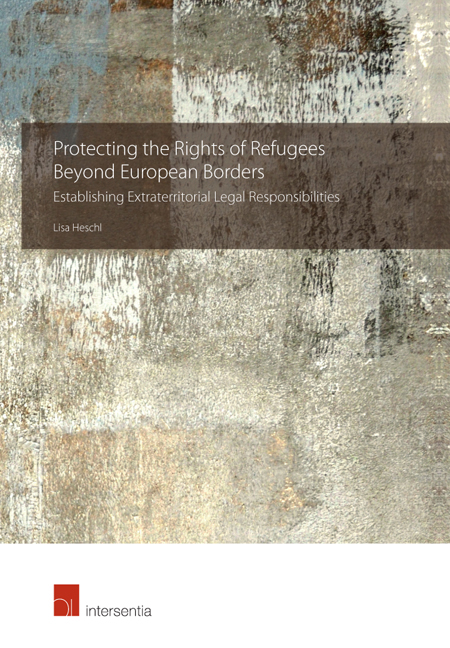 Protecting the Rights of Refugees Beyond European Borders
Protecting the Rights of Refugees Beyond European Borders Book contents
- Frontmatter
- Dedication
- Preface
- Acknowledgements
- Contents
- Table of Cases
- Table of Treaties, Instruments and Legislation
- List of Abbreviations
- Chapter 1 Introduction
- Chapter 2 The External Dimension of the European Migration and Asylum Policy
- Chapter 3 Extraterritorial Immigration Control Measures by EU Member States
- Chapter 4 Extraterritorial Immigration Control Measures by Frontex
- Chapter 5 Summary of Findings and Conclusions
- Bibliography
- Index
- About the Author
Chapter 3 - Extraterritorial Immigration Control Measures by EU Member States
Published online by Cambridge University Press: 12 October 2018
- Frontmatter
- Dedication
- Preface
- Acknowledgements
- Contents
- Table of Cases
- Table of Treaties, Instruments and Legislation
- List of Abbreviations
- Chapter 1 Introduction
- Chapter 2 The External Dimension of the European Migration and Asylum Policy
- Chapter 3 Extraterritorial Immigration Control Measures by EU Member States
- Chapter 4 Extraterritorial Immigration Control Measures by Frontex
- Chapter 5 Summary of Findings and Conclusions
- Bibliography
- Index
- About the Author
Summary
The extraterritorialisation of MS border controls as individual measures is nothing new. Operational immigration control measures of MS taking place beyond territorial borders have a rather long-standing tradition and are based on bilateral agreements concluded with third states. For instance, Southern MS such as Spain and Italy have concluded a series of such bilateral agreements with Northern African countries. The latter do all have some commonalities with regard to the subject of regulation. Relevant for this study, they do provide for possibilities of immigration control measures taking place beyond the territory of the MS party to such an agreement. These controls may take the form of MS officials joining the third state authorities on their ships; or it might take the form that MS are given carte blanche and are allowed to conduct immigration control operations themselves in the territorial waters of the cooperating state.
Problematically, the agreements are often concluded without public or parliamentary oversight, preventing ‘democratic control, transparency and the scrutiny of their compatibility with international law.’ The latter has in particular been questioned with regard to the Italian cooperation with Libya. Since 2000, Italy has increased its cooperation with Libya on the basis of bilateral agreements on migration control and the ‘Treaty on Friendship, Partnership and Cooperation’ concluded in 2008. From a conceptual perspective the aim of the cooperation with Libya was to turn the fight against irregular immigration into a fight against irregular emigration on the side of Libya. The immediate success of the cooperation was reflected by the drop in people arriving in Italy. With the outbreak of violence in the course of the Arab Spring revolutions in 2011, the implementation of the cooperation agreements was suspended during the first months of the conflict, even though the agreements themselves were not set aside per se. Unsurprisingly, the increasing numbers of people arriving in Lampedusa during 2011 and the lack of solidarity from the side of the EU MS, encouraged Italy to reinstall cooperation with Libya on migration control as soon as possible. Already in June 2011, Italy concluded a Memorandum of Understanding with the National Transitional Council in Libya with both parties agreeing to cooperate closely in the area of irregular migration including cooperation on the repatriation of irregular migrants.
- Type
- Chapter
- Information
- Protecting the Rights of Refugees Beyond European BordersEstablishing Extraterritorial Legal Responsibilities, pp. 47 - 140Publisher: IntersentiaPrint publication year: 2018


